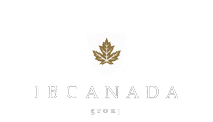The Infinite Banking Concept® (IBC®) is the process by which one becomes their own banker, as taught by the late Nelson Nash. In his definitive book on the subject, Becoming Your Own Banker, Nash explains how specially designed dividend-paying whole life insurance policies uniquely function as dividend-paying assets through accrued equity, and the many creative ways one can utilize this liquid cash value, such as:
- Creating one’s own tax-free lending system to finance large purchases (i.e., a car or a home), independently of commercial banks and lenders
- Generating personal wealth (as with stocks or cryptocurrencies, but without the volatility and with the added utility of protection for one’s beneficiaries)
- Using these practices for business financing
IBC® is not an investment. It is a safe storehouse of wealth that uses a dividend-paying whole life insurance policy as an account to warehouse liquid equity to allocate into opportunities.
Why dividend-paying whole life? Because no other account exists that works with IBC®.
IBC® allows people to take charge of their financial lives by reclaiming the banking function from strangers.
Why the interest in IBC®?
Why has IBC® gained such interest? It’s because conventional financial planning is not working.
The conventional system gives away control of people’s money, gives away wealth to banks, has high fees, high risk, gains are not locked-in, contributes to inflation (fractional reserve banking), utilizes invasive borrowing, is tax-infected, has roller-coaster returns, and offers no solution to recapture lost money (loan payments).
And with this interest in IBC®, some critics have surfaced, thinking they are protecting people from a scam.
IBC® is not a scam
IBC® is not a scam. It is highly endorsed by many accountants and economists.
IBC® retains more control, does not contribute to inflation, provides decent smooth, and steady returns, has lower fees and risks, locks-in gains, is not tax-infected, and recaptures lost money. As a result, it creates more wealth and retirement income than conventional financial planning.
Is it perfect? No, just like conventional financial planning isn’t perfect. While not perfect, it is better than conventional financial planning. At worse, it is complementary to conventional financial planning – a way to diversify.
Why do critics feel they have to protect the public?
Why do critics feel they have to protect the public? Perhaps it’s because there are many life insurance agents who are not Authorized IBC® Practitioners.
Since IBC® is getting a lot of airtime, many life insurance licensed agents are taking an interest. The problem is, unless they are Authorized IBC® Practitioners, they are not trained in how to create a specially designed IBC® policy, nor is their professional liability insurance perhaps ready to protect them or their clients if they mess it up.
Most critics are underqualified or under-educated to be considered an expert to critique IBC®. To be an Authorized IBC® Practitioner requires study well beyond the requirements of a CFP and CLU.
Infinite Banking® Canada Group (IBCG)
The Infinite Banking® Canada Group (IBCG) is a group of independent financial advisors and financial planners across Canada who are Authorized IBC® Practitioners.
To be a member of IBCG requires many hours of study on IBC® through the Nelson Nash Institute (NNI). Further, they must be interviewed, accepted as a member, and pay fees to be a member.
None of the IBC® critics have completed the NNI IBC Practitioner program, nor are they NNI or IBCG members.
Many critics hide behind social media and most are not open to learning or meeting with the people they are criticizing.
Who are these critics? Maybe they feel threatened IBC® may take away business from them. Or is it simply the case they want to be right?
Is IBC® for everyone? No. Could virtually everyone benefit from IBC®? Yes.
Helpful?
Critics can be valuable, but from my perspective, they are sharing their under-educated, personal opinion. The problem is that their misleading opinions may prevent many from investigating and implementing a solution that would help them solve a problem they have.
Like the business owner who pays $500,000 in loan interest annually. IBC® is the only way for them to recapture some or all of that.
Or the person who went bankrupt because they lost control of their money – IBC® would prevent many bankruptcies.
I’ve often wondered how much wealth many people have lost, and what they could have sued for, because of something an under-educated critic, advisor, accountant, lawyer, etc. misled someone on or told them not to do.
Let’s look at some of the recent statements from the critics.
Claims are not backed up by the data.
The actual results of a dentist in Ontario who has an IBC® policy shows their cash value grew virtually the same as the S&P/TSX since 1990, with lower fees, lower risk, locked-in gains, and non-invasive access to their storehouse of liquid wealth.
After fees and taxes, the S&P/TSX earned only 4.25% annually from 1990 to 2021.
The Ontario dentist IBC® policy grew by 4.16% annually over that same period. And that ignores the value of the recaptured loan payments.
Misrepresentations, lack of honesty
There will always be a few bad apples in every industry. The life insurance industry is no different.
There have been no complaints made against any Authorized IBC® Practitioners in Canada.
Over-promise, under-deliver
I assume this criticism is related to dividend-paying whole life insurance values being lower than initially illustrated. Dividend-paying whole-life dividend returns are based partially on long-term bonds held in its participating fund. When interest rates started to fall in the 1990s and since, long-term bonds, as they matured, were reinvested in new long-term bonds at lower rates. As this happened, the illustrated returns in these dividend-paying whole life insurance declined.
The same decrease in values happened with anyone investing in long-term bonds during this same period.
The source of dividends is not disclosed
Dividend-paying whole life insurance companies have paid a dividend every year for 150 consecutive years +/-. Stocks, mutual funds, and ETFs no.
Every life insurance company does disclose the source of dividends meeting regulator requirements.
Do life insurance companies disclose proprietary formulas, no. Pepsi or Coca-Cola do not disclose their proprietary formula.
There is no proof that lost money was recaptured.
The insurance company tracks the amount borrowed, the interest charged, and the repayments. However, since loan repayments are handled by the policyholder, it is not the responsibility of the insurance company to disclose publicly. Further, that may be a privacy violation. It’s a weak excuse for a critic to make as it’s simple math for anyone to check out – if the IBC® policy is the bank, and you own the bank, you are the recipient of the loan repayments and the wealth derived from them.
Deceptive, Lack of Disclosure
There may have been some bad apples, who may have misled some who purchased dividend-paying whole life insurance consumers in the 1980s and 1990s, when interest rates were high with something called “premium offset”. A popular strategy at that time was to buy a whole-life policy by paying a premium over several years then stop funding under something called premium offset – where policy dividends would pay future premiums. Some allege they were of the opinion the number of premiums they needed to pay was guaranteed. The illustrations did communicate this.
However, the message was not prominently placed, so when interest rates started to fall, further premiums were required. A class action lawsuit was launched on the basis that policy owners were of the opinion the number of premiums they were required to pay was guaranteed.
Since then, a sensitivity analysis is included in all illustrations illustrating premium offset. All policy owners must sign them to acknowledge. Again, the system was not perfect back then. It’s better now. Is it perfect yet? No. This is no different than an airliner crash. The crash investigators find out what happened and recommend changes to reduce the chance of the crash again. No different than with premium offset.
However, IBC® does not promote the use of premium offset. So, this criticism of IBC® has no merit.
There are many cases of deceptive practices in the securities industry. Simply Google it.
Next steps
The only way you’re going to grow is to learn by thinking outside the box and discarding paradigms.
You can watch this enlightening video on “Unveiling the Secrets to Financial Success“. Hear from two authorities in the Infinite Banking Concept (IBC) as they discuss the significant decrease in dependence on conventional banking.
Download our newest eReport, “Conquering Inflation: A Guide for Canadians.”
Need to talk now? Click the new chat button in the bottom right-hand corner of this page.




